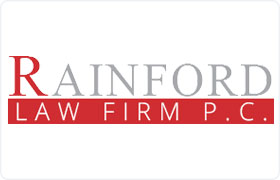Atlanta Bankruptcy & Debt Lawyer, Georgia
Sponsored Law Firm
-
 x
x

Click For More Info:
-
Rainford Law Firm P.C.
4920 N Henry Blvd. Stockbridge, GA 30281» view mapBankruptcy & Debt Law Experienced Bankruptcy & Debt Lawyer
Regardless of your situation, Attorney Chalcia Rainford is more than happy to guide you in the direction that will be most beneficial for you!
800-632-9140
Peggy Jones Golden
✓ VERIFIEDAttorney Jones Golden is a practicing lawyer in the state of Georgia.
Serge Jerome
✓ VERIFIEDSerge Jerome Jr. is a licensed Georgia Trial Attorney. He focuses his practice on Criminal Defense and Bankruptcy Law. He only cares about doing what'... (more)
Karen King
✓ VERIFIEDWe have helped thousands of clients avoid home foreclosure, car repossession and reduce their other debts. Our experienced team fully understands the... (more)
Matt Berry
✓ VERIFIEDRepresenting Georgia residents for over 30 years in Family Law, Bankruptcy and Social Security Disability.
Boniface Gawain Echols
✓ VERIFIEDBoniface Echols is a practicing lawyer in the state of Georgia.
Kirby Clements
✓ VERIFIEDKirby Clements, Jr. is our senior trial attorney. He is admitted to practice in Georgia, New York and the District of Columbia. He is a member of the ... (more)
Ralph S. Goldberg
✓ VERIFIEDRalph Goldberg has practiced law since 1975. He is a member of all courts in Georgia, and the Eleventh Circuit Court of Appeals, and Supreme Court of ... (more)
Chuck Michael Douglas
✓ VERIFIEDChuck Douglas is a practicing lawyer in the state of Georgia. He received his J.D. from Georgia State University. He currently works for his privately... (more)
Evan M. Altman
✓ VERIFIEDMr. Altman concentrates his practice in the areas of bankruptcy, corporate law, personal injury, medical malpractice, product liability and general li... (more)
 Chalcia Rainford Stockbridge, GA
Chalcia Rainford Stockbridge, GA AboutRainford Law Firm P.C.
AboutRainford Law Firm P.C. Practice AreasExpertise
Practice AreasExpertise










